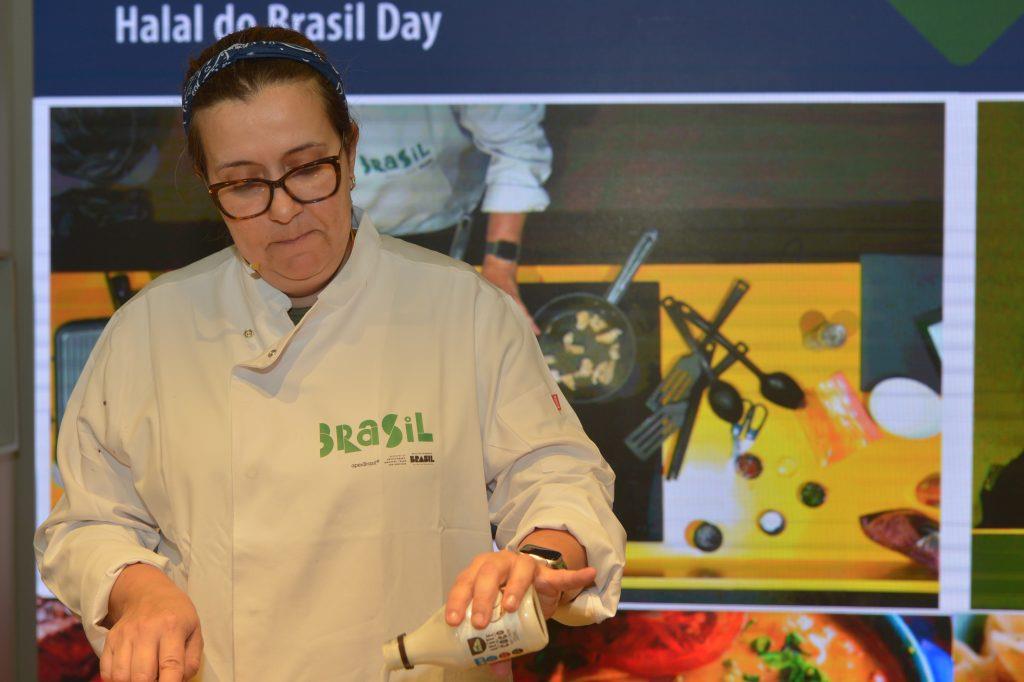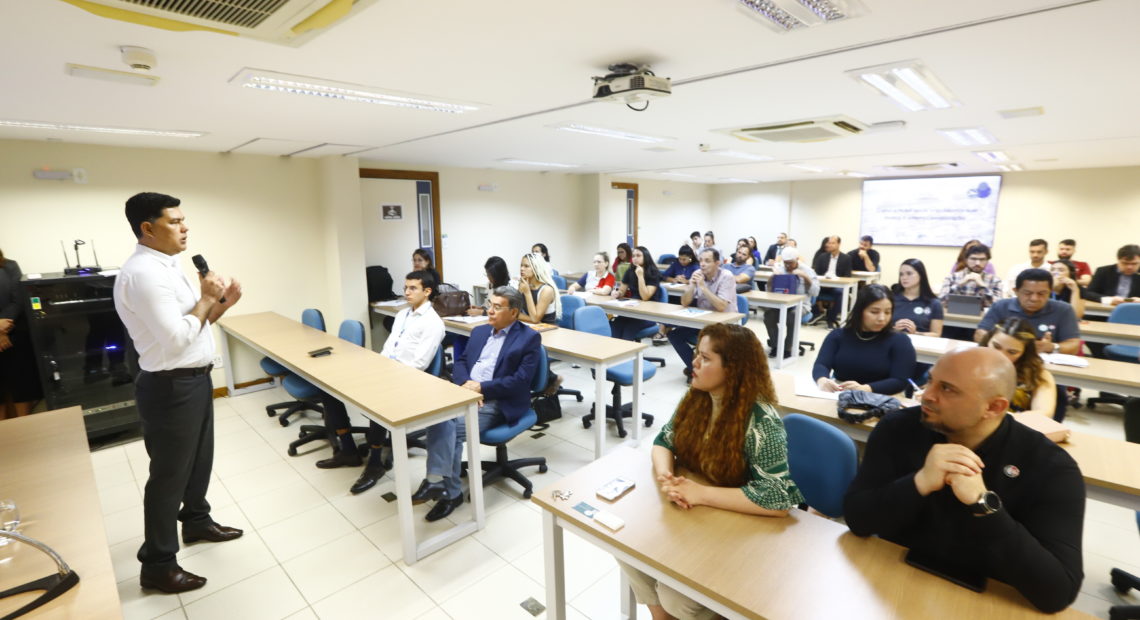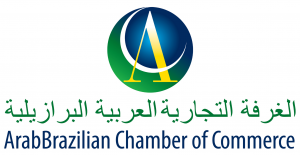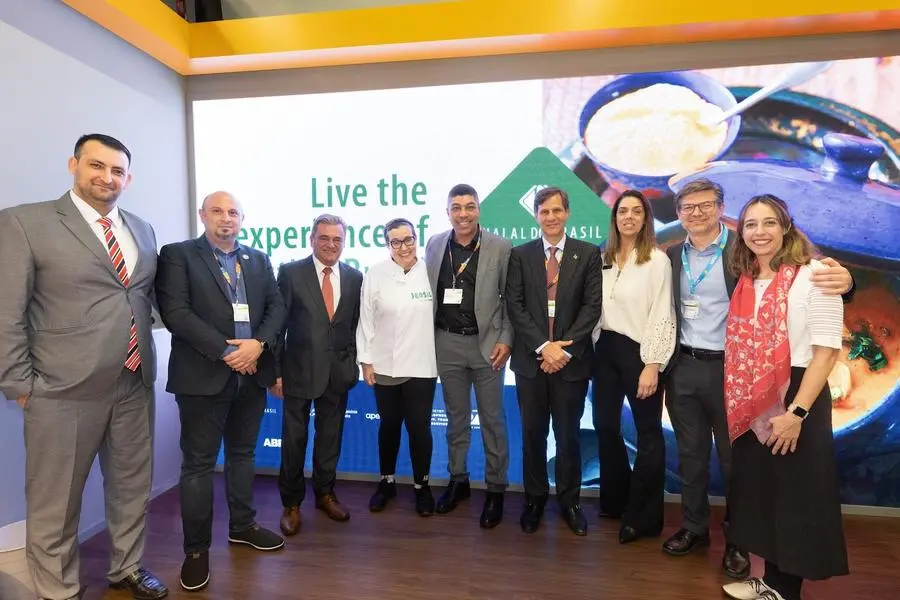Press Release/Arab-Brazilian Chamber
Sao Paulo – In 2023, the Halal do Brasil Project presented halal products (produced under the laws of Islam) to consumers and business people worldwide in actions in Arab countries, Indonesia, Malaysia, and Germany, in addition to Brazil itself. The goal for 2024 is to expand the promotion and visibility of these products. The project is a partnership between the Arab-Brazilian Chamber of Commerce (ABCC) and the Brazilian Trade and Investment Promotion Agency (ApexBrasil). It started in January 2023 and will run until April 2025, when it could be renewed. Pictured above, Brazilian halal products promotion in a show.
According to the International Projects Manager of the ABCC, Fernanda Dantas, in its first year, the project has already presented to foreign companies and major food and beverage sector entities in Muslim countries Brazil’s capacity and expertise in producing quality products for Muslims. This work has already bore its first fruits. In January 2023, the project had 22 member companies. In December, there were 73, surpassing the 60-member goal. For 2024, the goal is to reach 80 companies.
The project promotes halal products made in Brazil to consumers, sector institutions, and distributors in Muslim countries, whether Arab or not. As part of its actions in 2023, the project participated in shows like Malaysia’s MIHAS and Germany’s Anuga and hosted a seminar in Jakarta, Indonesia.
Roadshows were held in Brazil to present halal values and their potential to Brazilian business people – the Halal market is made up of 1.9 billion consumers worldwide concentrated in the Middle East, Asia, Africa, and Europe and in 2021 yielded USD 2 trillion in products and services, according to the State of the Global Islamic Economy report.
The project’s initiatives will be intensified this year. Roadshows will be held in Brazil’s Rio Grande do Sul and Parana?, two states with an export culture that were not included last year, in addition to more meetings with entrepreneurs in the North, Northeast, and Southeast. Starting in April, 100 Brazilian companies will receive online training to enter the halal market, focusing on developing brand, marketing, and positioning strategies.
The project will exhibit at Gulfood, the biggest food and beverage show in the Middle East, from February 19 to 23 in Dubai, United Arab Emirates. There, a cooking show is expected to be held, in which Brazilian chefs prepare dishes with Brazilian halal products at the ApexBrasil stand for visitors, like at similar events in 2023. Brazilian celebrities were also invited by the project to showcase the products. In addition to Gulfood, the project will participate in Saudi Arabia’s Saudi Food in May, Malaysia’s MIHAS in September, and Egypt’s Food Africa in December.
“The great importance of the project is to position Brazil as a reliable supplier of halal products, in addition to halal protein, for which our country is already well known. Regardless of not being a Muslim-majority country, we produce high-quality halal products. It’s a certification of trust. We work to establish the Brazilian Halal brand as a reference for quality products and help Brazilian companies enter these markets,” said Dantas.
One of the actions carried out in 2023 that will be repeated in 2024 is the buyer project – in October last year, seven halal-importing foreign companies came to Brazil at the project’s invitation to meet with Brazilian exporters. For August this year, 15 importers are expected to come for B2Bs with 45 exporters. Another initiative that has yielded results was the Image Project, which brought journalists from seven international media outlets to technical visits in Brazil. In addition to reporting to their countries on the visits and events they went to here, said Dantas, these and other opinion makers began to see Brazil and its companies as a reference for halal products.“As the first year of this very innovative project, it was very satisfactory, as we managed to have companies getting involved and certifying [as halal producers],” said Dantas.




